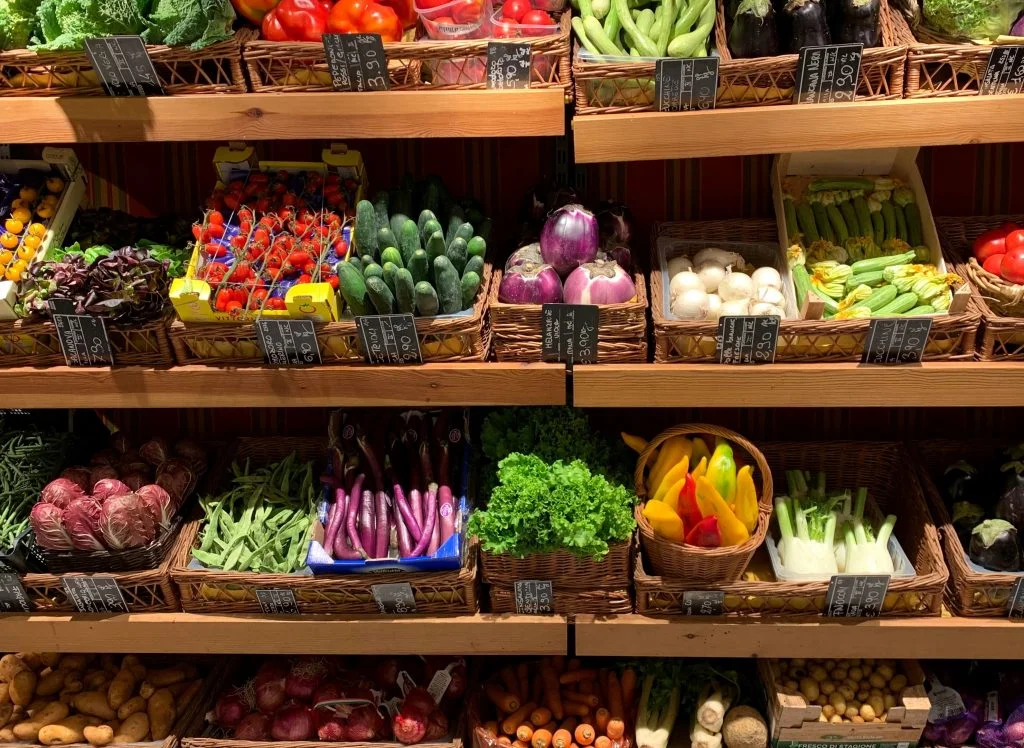In India, where traditional practices often emphasize frugality and sustainability, adopting zero-waste grocery shopping habits can be both practical and impactful. By making conscious choices, we can reduce waste, save money, and contribute to a healthier planet.

1. Plan Ahead and Make a List
Before heading to the market, plan your meals for the week and create a shopping list. This helps avoid impulse purchases and ensures you buy only what you need, reducing food waste. India Today
2. Bring Your Own Reusable Bags and Containers
Carry cloth or jute bags for groceries and smaller cloth bags for produce. For items like grains, pulses, and spices, bring your own containers or jars. This minimizes the use of plastic packaging. mindfulofthehome.com
3. Buy in Bulk Where Possible
Purchasing staples like rice, lentils, and spices in bulk reduces packaging waste and is often more economical. Many local stores and markets accommodate bulk buying if you bring your own containers. India Today
4. Choose Loose and Seasonal Produce
Opt for loose fruits and vegetables instead of pre-packaged ones. Seasonal produce is fresher, more affordable, and has a lower environmental impact due to reduced transportation and storage needs. India Today
Also Read Eco-Friendly Kitchen Swaps: A Simple Guide for Indian Homes
5. Avoid Single-Use Plastics
Say no to plastic-wrapped items and single-use plastic bags. Instead, use reusable alternatives like beeswax wraps or silicone lids for storing food at home. Homes and Gardens
6. Support Local and Zero-Waste Stores
Patronize local vendors and zero-waste stores that encourage sustainable practices. These establishments often allow customers to bring their own containers and offer products with minimal or no packaging. The Shooting Star
7. Be Mindful of Food Storage
Properly storing food extends its shelf life and reduces spoilage. Use airtight containers for dry goods and keep your refrigerator organized to ensure older items are used first.
8. Compost Organic Waste
Set up a compost bin at home for vegetable peels, fruit scraps, and other organic waste. Composting reduces landfill waste and produces nutrient-rich soil for gardening.
9. Educate and Involve the Family
Involve all family members in zero-waste practices. Teach children about the importance of sustainability and encourage them to participate in eco-friendly habits.
10. Start Small and Stay Consistent
Transitioning to a zero-waste lifestyle doesn’t have to happen overnight. Begin with small changes and gradually incorporate more sustainable practices into your routine. Consistency is key to making a lasting impact.
Frequently Asked Questions (FAQs)
Q1: Is zero-waste grocery shopping expensive?
Not necessarily. Buying in bulk and avoiding packaged goods can save money. Additionally, reusable items are long-term investments that reduce the need for disposable products.New York Post
Q2: Where can I find zero-waste stores in India?
Cities like Bangalore, Mumbai, and Delhi have zero-waste stores. Online platforms also offer sustainable products.
Q3: How do I manage without plastic packaging?
Use cloth bags, glass jars, and stainless steel containers. Many local vendors are accommodating when you bring your own packaging.
Q4: What if my local store doesn’t support bulk buying?
Engage with store owners and express your interest in sustainable practices. Community demand can encourage stores to adapt.
Q5: How can I ensure food safety when using reusable containers?
Clean containers thoroughly after each use and store them in a hygienic environment. Label containers to keep track of contents and expiration dates.
Adopting zero-waste grocery shopping habits is a practical and impactful way to contribute to environmental sustainability. By making informed choices and involving the entire family, Indian households can lead the way in promoting a greener future.
Author- Ayush










1 thought on “Smart and Simple Zero-Waste Grocery Shopping Tips for Indian Households”